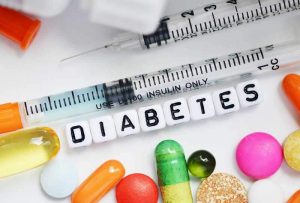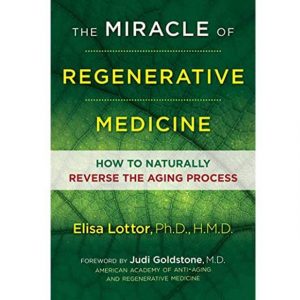Hormones and Weight Loss Los Angeles
Hormones And Weight Loss: From Fat to Fabulous
Hormones and Weight Loss Part 1: Estrogen Hormones
Why is it so difficult to lose weight around and during menopause? At these times, weight gain becomes more common and feels different than weight gain at other times of life. Pounds are easier to gain, harder to lose and show up as love handles, belly fat and/or cellulite. In addition, the usual methods of dieting and exercise don’t work anymore. Sometimes, weight loss difficulties have nothing to do with diet and exercise.
When it comes to hormones and weight loss, things like nutritional imbalances, chronic inflammation, metabolic issues, leaky gut, toxins and even genetics can cause weight loss issues. However, for women in perimenopause and menopause, the difficulties are most likely due to hormonal imbalances. It becomes almost impossible to lose weight. This is of course until hormones are replaced and balanced. Hormone fluctuations in perimenopause and menopause directly impact appetite, fat storage, and metabolism. The causes of hormonal weight gain and resistance to weight loss in menopause and perimenopause are explained below.
The first important hormone to know about is estrogen.
Changes In Estrogen Levels and Weight Loss Difficulty
One cause of weight loss difficulty around and during menopause is the changing and fluctuating of estrogen levels. The ovaries produce more estrogen relative to progesterone during this time but levels of both these hormones start to decrease dramatically. The body will find other sources of estrogen. Since fat produces estrogen, the body will increase fat production to make more estrogen.

Avoiding Weight Gain and Estrogen Dominance
Too much estrogen (estrogen dominance) can be due to dietary issues such as excess sugar, refined carbs, alcohol and red meat, and low fiber intake. Too many antibiotics damage the gut leading to estrogen spikes because the body can’t properly detoxify or excrete waste. Environmental toxins such as phthalates and biphenyl A mimic estrogen in the body. They bind to sites that estrogen normally does. Furthermore, excess estrogen can cause the following:
- Cellulite
- Weight gain in the hip and thigh areas
- An increase in breast size and tenderness
- Fluid retention
- PMS and Irritability
- Fibroids
- Heavy periods
- Ovarian cysts
Estrogen dominance can be controlled by limiting red meat, alcohol, and cutting way down on sugar and carbs. Getting your estrogen level evaluated and balanced by a physician specializing in bioidentical hormone replacement therapy can help alleviate these serious symptoms. In addition, balancing estrogen has lifelong benefits for health including the following:
- Losing and maintaining weight loss
- Preventing bone breakdown
- Aiding with mineral absorption
- Keeping skin hydrated
- Helping regulate menstrual cycles.
Estrogen is also important for the health of the brain, and cardiovascular system.
Hormones and Weight Loss Part 2: How The Insulin Hormone Affects Weight Loss

During perimenopause and menopause, some women notice it becomes more difficult to lose weight and easier to gain it. Weight is not distributed the in the body as it was in younger years. Thus, body shape can change subtly or drastically, with love handles, abdominal, breast and arm weight appearing. Fat in these areas is an indicator of hormonal imbalance, which, in large part, is due to the hormone insulin.
WHAT ARE THE FUCNTIONS OF INSULIN AND HOW IS IT MADE?
Insulin, produced in the pancreas, regulates the digestive system by facilitating the break down and conversion of food into energy. Another major function of insulin is to regulate and stabilize blood sugar levels. All food eaten is broken down into proteins, nutrients, and glucose for use in metabolism. Insulin processes glucose (the body’s key fuel source) in the bloodstream and carries it into cells to be used as fuel. Once cells have received enough glucose, any excess gets stored as fat.
INSULIN RESISTENCE & TYPE 2 DIABETES
Chronically high levels of insulin can lead to a pre-diabetic condition called insulin resistance and possibly even type 2 diabetes. Insulin levels rise in almost all women during menopause due to the hormonal imbalance triggered by changes in estrogen and progesterone. Elevated insulin levels can also be triggered by a high sugar, high refined carbohydrate diet, excessive alcohol as well as lack of exercise, stress, high blood pressure and/or a family history of diabetes.

When a woman is insulin resistant, she is producing adequate amounts of insulin but her body is not responding to it normally. Thus, Glucose is less able to enter the cells. The pancreas detects this excess glucose and increasingly pumps out insulin to push the extra glucose into the cells. Because insulin is unable to facilitate pushing glucose into the cells, excess levels of glucose build up in the blood and get stored as fat. Because this process deprives body cells of energy, a stressful situation in created leading to craving for sweets, carbohydrates, and further weight gain.
Anyone can become insulin resistant, but as just illustrated it is more common in women during perimenopause and menopause. The best way to treat insulin resistance and begin losing weight is through lifestyle changes. Below are a few suggestions:

- Keep glucose levels stable by eating 5-6 mini meals/day with protein and complex carbs at each meal. Proteins and complex carbs are harder to digest and keep blood sugar and insulin levels stable.
- Don’t skip or delay meals because this slows metabolism and will cause glucose level to drop below normal.
- Eliminate white food such as bread, pasta, and sugar.
- quit smoking, limit alcohol, and get 7-8 hr. sleep/night.
Other Weight Loss Services
Contact Us Online
Our Office
— Monica G
Get In Touch With Us


